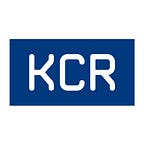Meeting Summary: The FDA’s “Toxicity Risks of AAV Vector-based Gene Therapy”
By: Dr. Karoline Hahn, Senior Consultant for Advanced Therapies at KCR
On September 2nd and 3rd, 2021, the FDA met a panel of gene therapy experts to access an array of safety risks presented by treatments delivered by the adeno-associated virus, AAV. The meeting came after several safety incidents in gene therapy re-opening longstanding concerns about hepatotoxicity as well as administration of high vector doses. In his opening words, Wilson Bryan, director of FDA´s Office of Tissue and Advanced Therapies said, “Our enthusiasm for this field must be balanced with caution”.
The meeting provided an excellent update on non-clinical and clinical toxicity findings. But panelists were hesitant to make clear recommendations to the FDA although they were firm not to set an upper limit on dose. As the community starts to understand the scientific issues of gene therapy, a kind of standardization is missing but would be required to provide recommendations for study design, non-clinical and clinical. Studies assessing vector integration and associated development of cancer were assessed in serval animal studies. In mice, AAV integrates predominately in a particular sequence within the Rian locus and is associated with cancer development. Research in lager animals, such as dogs, and in humans haven´t reproduced the findings in mice. Dogs treated with a hemophilia gene therapy had vector integrations but did not develop cancer. One reason for the different findings may be that the Rian integration site in mice is not present in higher animals and humans.
The importance of understanding the science behind the toxicity findings in order to give recommendations is underlined by investigations on neurotoxicity. Dorsal Root Ganglion (DRG) toxicity is thought to be caused by transgene expression as treatment with immunosuppressive drugs has no impact on toxicity. Furthermore, degree of DGR toxicity is influenced by the type of transgene product.
With over 1000 patient treated with Zolgensma, the Novartis AAV-based gene therapy for Spinal Muscular Atrophy, there is the opportunity to gain real world data on the toxicity of gene therapies.
